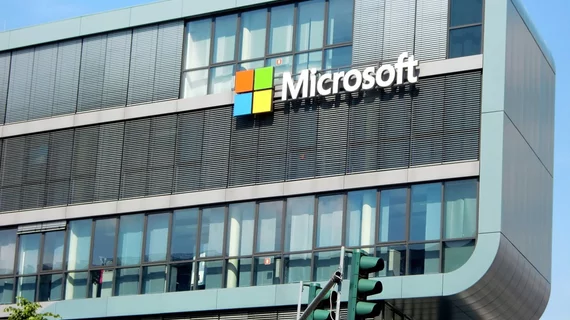Epic and Microsoft join forces to tackle some of healthcare’s biggest AI challenges
Healthcare technology giant Epic and global technology powerhouse Microsoft have expand their partnership yet again, this time with the aim of improving the use of generative artificial intelligence (AI) in healthcare. Generative AI creates images, text and statistics, which in the context of healthcare can enhance diagnostic support application, accelerate drug discovery through molecular structure generation and offer personalized patient support via AI-driven chatbots. For now, Microsoft and Epic seem to be focused on how AI can improve care delivery.
According to a blog post, the two companies intend to provide secure access to AI-powered clinical insights and administrative tools across various Epic modules, promising a holistic transformation of healthcare practices.
"We combined Microsoft’s large-scale cloud and AI technologies with Epic’s deep understanding of the healthcare industry and clinical workflows to address many current issues affecting clinicians,” according to the blog post. “Intended to speed development of solutions for healthcare’s most critical needs, the initiative will expand secure access to AI-powered clinical insights and administrative tools within a wide range of Epic modules to enhance patient care, increase operational efficiency, improve healthcare experiences, and support the financial integrity of health systems globally.”
The partnership will result in the continued integration of conversational, ambient and generative AI technologies into the Epic electronic health record (EHR) ecosystem. The companies' ultimate goal is to streamline workflows, improve patient care delivery and bolster the efficiency of healthcare systems on a global scale – and its impact could be seen everywhere, considering Epic is used in 36 percent of U.S. hospitals.
One of the key areas of focus is to address the imminent challenges healthcare providers face, specifically shortages of physicians and associated clinician burnout. Microsoft and Epic are deploying AI to mitigate these challenges by introducing solutions that streamline processes and alleviate much of the clerical burden that contributes to physician unhappiness.
“By 2025, the U.S. Department of Health and Human Services predicts that there will be a nationwide shortage of 90,000 physicians. Additionally, 40% to 60% of clinicians report they are experiencing burnout,” the blog warns, noting how these numbers will negatively impact healthcare costs. “According to McKinsey & Company, nearly a quarter of U.S. national health expenditure goes toward administrative costs, which could be reduced through technology.”
Epic and Microsoft have collaborated many times in the past, including earlier this year when the two worked to bring GPT-4 – the latest upgrade to the underlying technology behind ChatGPT – to Epic EHRs, allowing physicians to automatically generate notes to patients.
Epic showcased many of its new AI capabilities – powered in part by Microsoft’s Azure OpenAI Service – at its annual conference, which took place Aug 21 - 23.
The full blog post on the latest initiative can be read here.

